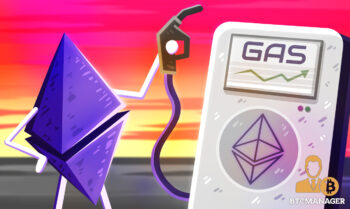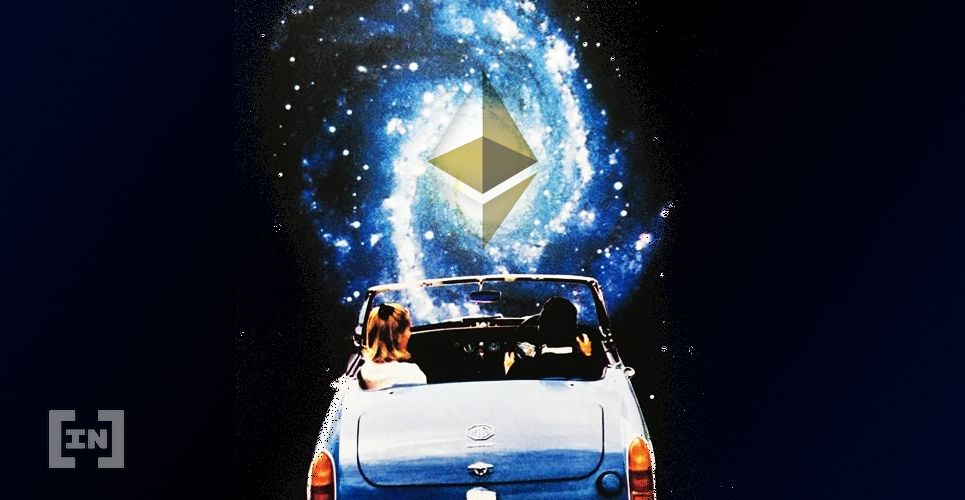
2020-9-21 13:00 |
Ethereum gas prices have set new records, with single DeFi transactions costing over $10 in fees. High fees are the result of congestion, as users pay ever higher fees to ensure their transaction gets into a block. As DeFi takes off, the price of gas on Ethereum threatens its future. Or does it?
Is the Party at Vitalik’s House?Gas on Ethereum can be seen as “block space rent” and many are saying the rent is too damn high. That depends on who you ask, though. Even a $10 fee is a small fraction of many DeFi trades, as speculators are by definition those who have “money to burn.” For the moment at least, DeFi is a market that exists on Ethereum. If you have profitable trades to make on DeFi, then gas is simply another cost of doing business, since there is no other way to make the trade.
This is why high gas prices don’t cause Ethereum leaders and boosters to lose sleep: the very fact of high gas prices only serves to amplify the message that Ethereum is the only game in town. It’s certainly true for DeFi today, but it can also translate to the perception of Ethereum as the only platform for smart contracts. Why go anywhere else when gas prices prove that the party is at Vitalik’s house?
Gas prices go up as Ethereum gets more congested, and while the current rate is eye-poppingly high, congestion on Ethereum is nothing new. In late 2017, CryptoKitties was a collectibles game new to Ethereum that exploded in popularity and instantly caused the entire network to slow to a crawl. Non-CryptoKitties transactions such as entire ICOs went from minutes to hours and even days for completion.
For dApp developers and projects this was, and still is, extremely worrisome. If gas prices are block rent, immediacy — the ability to transact in some predictable amount of time — is an arbitrary popularity contest. If you are the developer of an application that provides a time-sensitive service to a minority of Ethereum users, you can find yourself waiting behind a deluge of transactions to serve the latest craze, simply because it is attracting more users than your app. It doesn’t matter that those users represent an entirely different market: your app will still lose based on numbers alone.
A Playground for the Wealthy This is compounded by the fact that not all applications are designed to net their users hundreds or thousands of dollars with every transaction, like the transactions of your average DeFi speculator. For a non-DeFi application, high gas prices exact an arbitrary drain on their ability to deliver value. Like high rents on commercial real estate, it can drive these efforts “out of business” if the mere cost of executing a transaction exceeds whatever revenue could ever be made in that transaction. High gas prices make blockchain a “playground of the wealthy.” While Ethereum’s high gas prices seem to only cement Ethereum’s network value, it also inescapably damages Ethereum’s utility as a smart contract platform for delivering decentralized and world-changing applications to the larger population. Instead, expensive gas fees serve to limit the market to rich speculators. This is not to disparage DeFi, as decentralized finance itself opens up markets to non-traditional participants. That said, the promise of smart contracts on a decentralized platform goes well beyond financial engineering. DeFi Participants are Actively planning Moves Also, it is worth noting that major DeFi participants are actively planning moves onto other platforms, with USDT (Tether) just announcing another alternative platform partner. So while Ethereum is the main game in town, many projects are seeing the writing on the wall that something has to change as Ethereum is clearly bursting at its seams. Why now? If this problem dates back to CryptoKitties, where any application is at the mercy of the most popular dApp destroying the network’s ability to function properly, what has changed? For a long time, Ethereum has been pointing to a future where the blockchain changes to Proof of Stake. In the last few years, the focus has been on Ethereum 2.0, which intends to deliver a sharded solution to solve congestion problems. The combination of Proof of Stake and sharding sounds perfect, and has served to reassure Ethereum projects that the current congestion problems and high gas prices will soon be a thing of the past. High Gas Prices Lead to Questions About The Promise of Blockchain The problem is that the Ethereum gang has proven themselves incapable of shipping promised improvements on any kind of reliable schedule, with a production Ethereum 2.0 sharded network always staying 1 or 2 years away. 2020 has been the year that faith in Ethereum 2.0 finally cracked, creating opportunities for alternative platforms that can actually deliver a scalable solution. Now, leading projects are actively working with blockchain platforms like Cosmos, Polkadot and others to build “exit ramps” off Ethereum, even as DeFi hits new highs. For DeFi, the future looks bright. Even as high gas prices lead to questions about the promise of blockchain, DeFi is forcing the ecosystem to consider new participants who can deliver where Ethereum 2.0 has failed. There are scalable blockchain platforms today that offer solutions where high traffic doesn’t mean high gas prices, where an application that is popular with one set of users doesn’t threaten the viability of another that is delivering critical services to a minority. We are at the start of a major transition in smart contract blockchains. What lies ahead is a future where blockchain technology moves beyond speculation to solve real problems. Written by Stuart Popejoy Stuart Popejoy is Founder and President of Kadena with 15 years experience in building trading systems and exchange backbones for the financial industry. Prior to starting the company with co-founder Will Martino, Stuart worked at J.P. Morgan in the Blockchain Center of Excellence, where he led and developed their first blockchain, Juno. Stuart also wrote the algorithmic trading scripts for JPMorgan, which informed his creation of Kadena’s simple smart contract language with Formal Verification, Pact. Did you know you can create smart contracts and token dividends on Bitcoin Cash? Read more on smart contracts here and on dividends here.
This is OP-ed. The opinions expressed in this article are the author’s own. Bitcoin.com is not responsible for or liable for any content, accuracy or quality within the Op-ed article. Readers should do their own due diligence before taking any actions related to the content. Bitcoin.com is not responsible, directly or indirectly, for any damage or loss caused or alleged to be caused by or in connection with the use of or reliance on any information in this Op-ed article.
The post Party at Vitalik’s House? For DeFi, it’s Do-or-Die appeared first on Bitcoin News.
origin »Bitcoin price in Telegram @btc_price_every_hour
Defi (DEFI) на Currencies.ru
|
|











